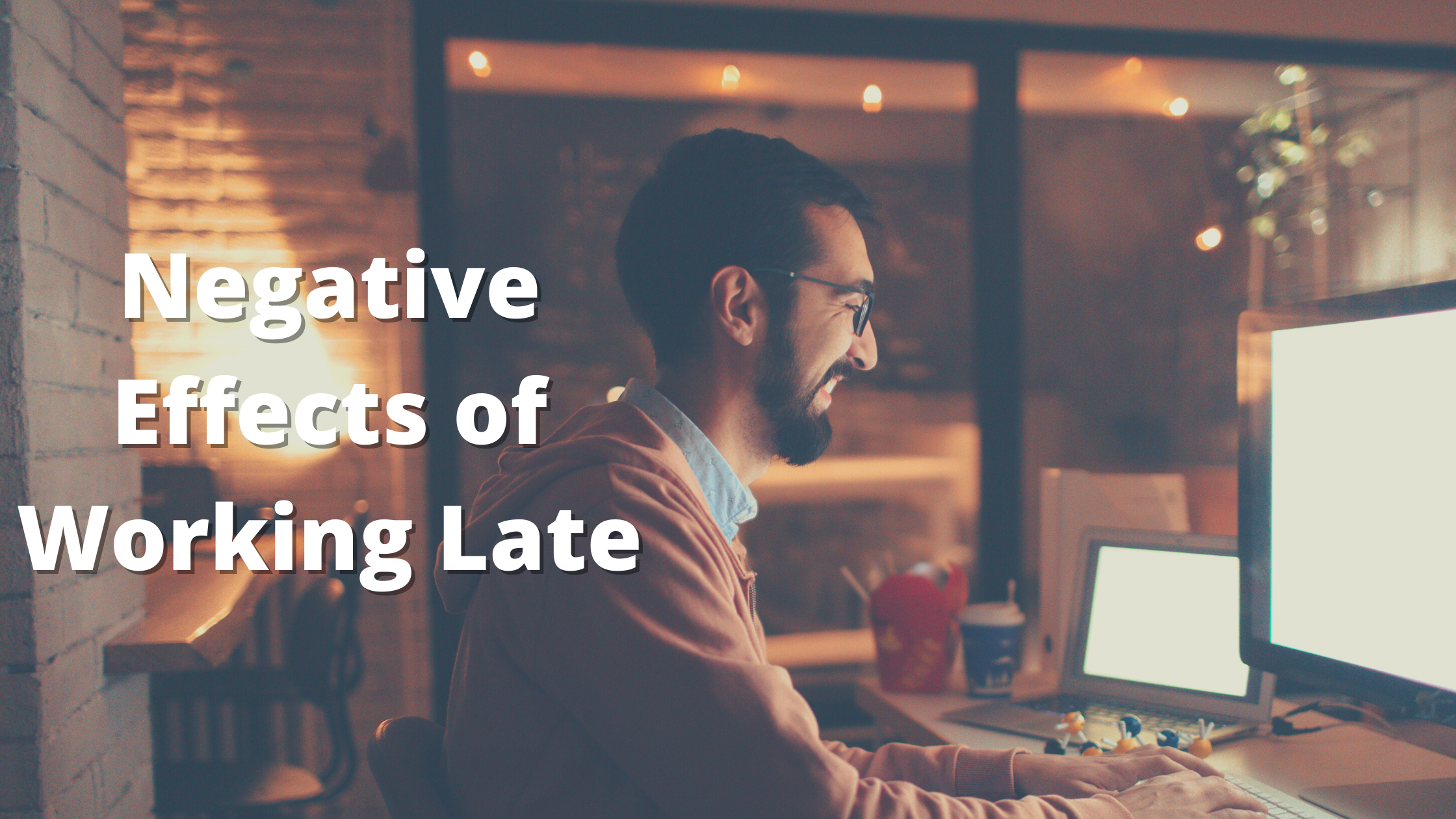
The pandemic has really blurred the lines between the end of the workday and the beginning of at-home leisure time. Even if you had a demanding job before the pandemic, then you may have experienced similar overflow of one world into the other. Working from home continues to complicate this boundary because there is no significant moment to define the end of the day (such as logging off and driving home).
It's up to employees and workers what time and how they are going to end their workday. If you find yourself working all the way up until it's time to go to bed, you may begin having sleep trouble (if you haven't already). This article will talk about the negative effects of working right up until bedtime instead of taking a break to decompress before bed.
Exposure to blue light
Computers, phones, TVs and any other LED screen all have blue light emitting from them. When you're getting ready to go to bed, this blue light can disrupt melatonin production from the pineal gland, a part of your brain that produces the sleep hormones. The light outside signals to your retina, a group of cells in your eyes, when it's time to go to sleep.
Blue light interrupts this process, so your brain may not emit the amount of hormone necessary to get a good night's rest. Working up until bedtime doesn't give your brain a lot of time to produce this. It may be harder to go to bed, stay asleep, and truly feel rested in the morning.
Try instead: Closing your laptop a couple of hours before bed. If there are still things that need to be done, print them out and do things on paper or non-screen related. Or, you can wear blue light blocking glasses which will reduce the amount of blue light that your eyes are exposed to.
Fluctuating cortisol level
Cortisol is a hormone in your body that is responsible for getting many bodily functions going. It is also known as the stress hormone. When you are in stressful situations, your body will release cortisol, which will trigger the release of other adrenaline-pumping hormones like epinephrine and norepinephrine.
At the beginning of the day, cortisol peaks to get the other bodily processes going. However near the end of the day, those levels should be dropping so you can get adequate sleep. But if you're working, your levels of cortisol may still be elevated. In addition to that, if your job is stressful, then you may be in a constant state of heightened or elevated cortisol. Without any time to decompress, you are attempting to go to bed with these high levels of cortisol. This may interrupt your sleep and make it hard to feel truly relaxed.
Try instead: Find a time to call it a night, a couple of hours before bed and take five minutes to do a quick meditation. You don't have to sit with your legs crossed saying "ommmm". But an easy meditation is a body scan which is where you lay down, and think about how each part of your body feels from your toes to the top of your head. This may help reduce high levels of cortisol so you can get better sleep.
Triggers Rumination
Rumination is the processes of cycling through the same thoughts over and over again. If you're working to solve a problem, then that may dominate your thoughts until you find a solution that works. During the day, this may be acceptable as you are trying to produce something for your job. However, when you're trying to go to bed, rumination can be really disruptive to the process of going to sleep.
When you are thinking about something incessantly before bed, and then go right to sleep, then these thoughts may invade your mind during the night, decreasing your quality of sleep. Without a buffer in between working on a tough task and going to sleep, the two may blur and your sleep will take a hit.
Try instead: Writing down your thoughts, questions and ideas when you've declared your work over. Pick it up in the morning when you have a fresh brain that may actually better be able to come up with a solution than your sleepy brain. This also helps you dump the information from your brain so you can relax your mind before going to sleep.
These tips can be the beginning to you establishing boundaries so you can get a good night of sleep. It's important to create separation so you can thrive in your health as well as your job. A tired brain is non-productive, has trouble focusing, forgetful, and moody. None of these make up the qualities of a great employee. Take care of yourself and you may have a better chance of excelling at your job.

